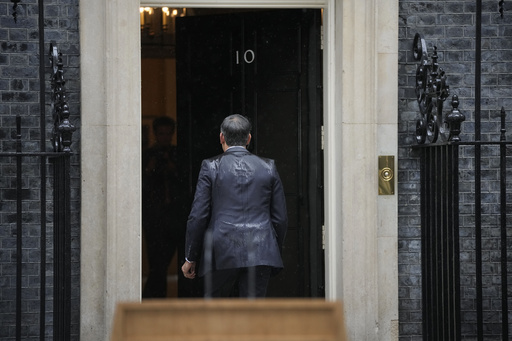Rishi Sunak, the former Prime Minister of Britain, faced criticism for his lack of political acumen during his campaign to remain in office. The Conservative Party, already grappling with significant challenges, suffered a significant election defeat, partly attributable to missteps by Sunak, the country’s wealthiest Prime Minister. Sunak’s decision to call an election earlier than necessary and the party’s unpreparedness for the campaign were seen as contributing factors to the loss. Despite Sunak’s efforts to address voters’ concerns about the economy, many citizens did not perceive improvements.
Sunak’s premature departure from the D-day commemorations in France was considered a significant blunder, leading to accusations of disrespect towards veterans and damaging the UK’s international reputation. The decision to leave the event early was criticized in contrast to the attendance of other world leaders like Joe Biden and Emmanuel Macron. Sunak, who became Britain’s first Prime Minister of Indian descent and Hindu faith at the age of 42, faced challenges in connecting with the broader population due to his affluent background and perceived detachment from everyday struggles.
Despite early successes such as implementing substantial economic support during the pandemic, Sunak struggled to unite the Conservative Party and address internal divisions on various issues like immigration and tax policies. His tenure was marked by attempts to balance the demands of different factions within the party. Eventually, Sunak acknowledged his responsibility for the election loss and pledged to continue serving in parliament until 2029 while supporting the Conservative Party in opposition. Some speculate that Sunak might pursue interests in artificial technology in the future.
Sunak’s background as a former hedge fund manager and marriage into a billionaire family raised questions about his relatability to the general public. As one of the wealthiest residents of Downing Street, Sunak’s financial status sometimes led critics to view him as disconnected from the common people’s experiences. Despite his educational and professional achievements, including degrees from Oxford and Stanford University, Sunak faced challenges in earning broad public trust and navigating the complexities of leading a diverse political party.
Moreover, Sunak’s support for Brexit in 2016, which he now regrets along with many Britons, further highlighted the disconnect between his positions and public sentiment. As Sunak contemplates his future beyond politics, his past decisions and leadership style during his short-lived tenure as Prime Minister will likely be the subject of continued scrutiny and analysis.


